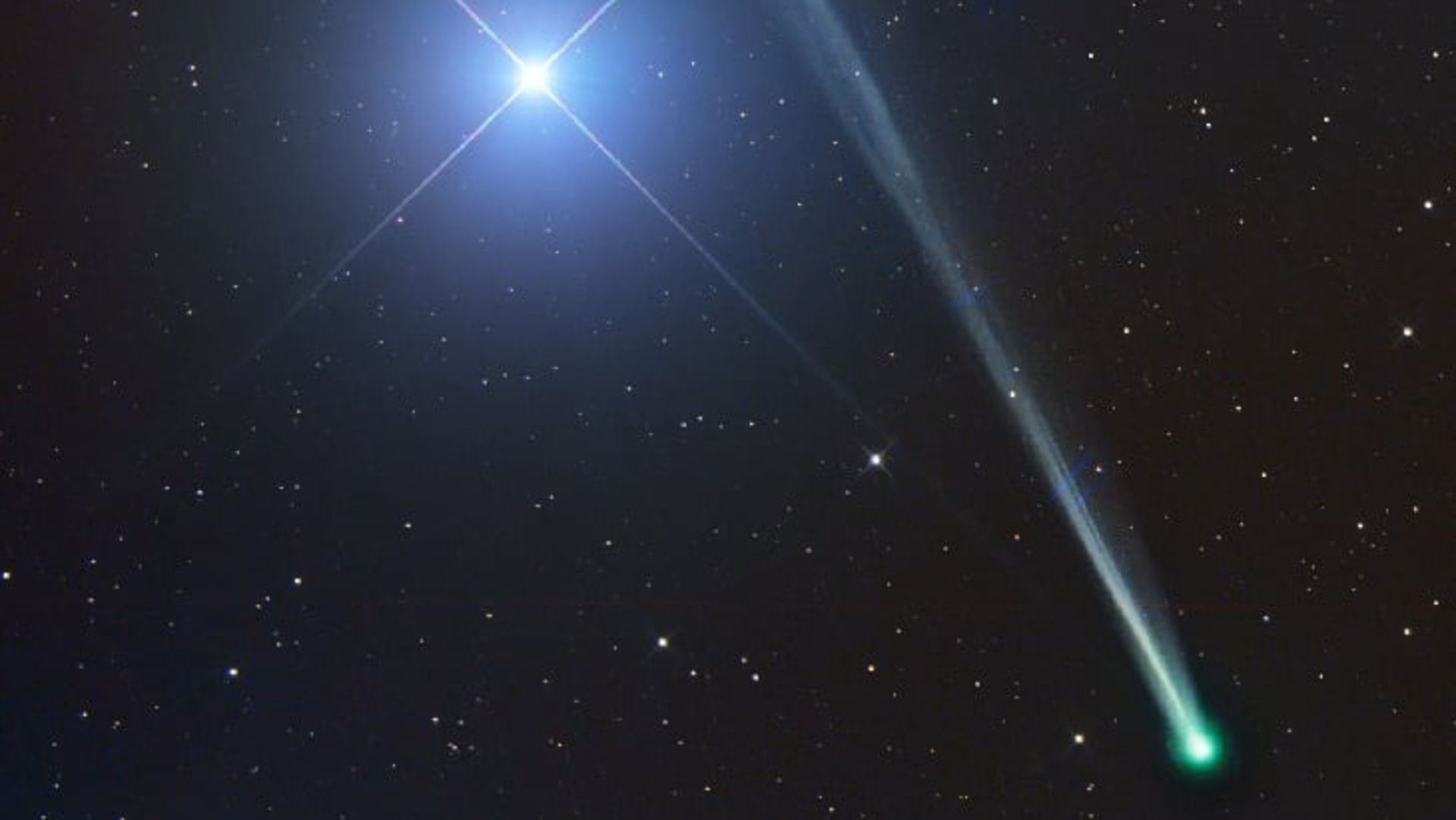![]()
An extremely bright meteor lit up the night sky over Japan on Tuesday night. It could be seen from hundreds of miles away.
The colossal fireball blazed across the skies of western Japan. The incredible sight was captured on dash cams and surveillance cameras on Kyushu, the southwesternmost main island in Japan, and Osaka, a major city on Japan’s largest main island, Honshu.
“A white light I had never seen before came down from above, and it became so bright that I could barely see the shapes of the houses around us,” Yoshihiko Hamahata told public broadcaster NHK, The Guardian reports.
“What I saw in the videos were amazing, stunning — a beautiful live show in the sky,” Luke Daly, a professor of planetary geoscience from the University of Glasgow, told The Washington Post today.
Daly explained that fireballs are especially bright meteors. When a meteoroid — a space rock — enters the Earth’s atmosphere at high speeds, the friction from the atmosphere heats it. While a typical meteor is a very short-lived flash in the sky, a fireball, which is an official astronomical term, is “exceptionally bright.”
Per NASA, a fireball is “an unusually bright meteor that reaches a visual magnitude of -3 or brighter when seen at the observer’s zenith.” A fireball is often caused by objects larger than one meter (three feet) in diameter, whereas regular meteors are usually much smaller.
Witnesses in Japan claim they heard an explosion-like boom as the fireball flew above, which suggests that the object’s speed surpassed the speed of sound and created a sonic boom.
Fireball expert Daichi Fujii, curator at the Hiratsuka City Museum, speculated to Asahi Shimbum that the fireball may have been traveling as fast as 21 kilometers per second, or nearly 47,000 miles per hour, based on its relative position to a background star in multiple fixed-position camera angles. Fujii adds that, like a meteorite that lit up the skies in the Chiba prefecture in July 2020, the fireball last night could have come from the asteroid belt between Mars and Jupiter.
It is believed the fireball landed in the Pacific Ocean, dashing nearly all hopes of recovering the object. Daly told The Washington Post this is very sad, as an object like this could provide key insights into how the solar system formed billions of years ago.
Image credits: Header photo by Nandenko via Reuters
Source link


